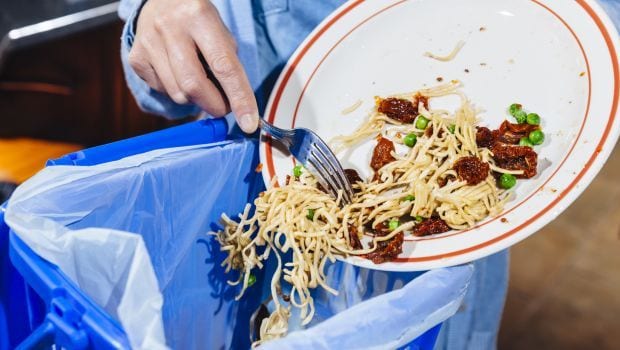Food waste represents nearly one-third of the food supply annually. This waste could feed a billion people. Food wastage is perhaps one of the most neglected and downplayed urban issues, which leads to a cycle of various commodities being discarded via improper methods. Let's first understand what exactly food wastage is. Food waste is described as food that is of good quality and fit for human consumption but that does not get consumed because it is discarded, either before or after it spoils. Wasted food is the result of misaligned transportation from farms to stores to homes, and it's the decision of the consumer.

Photo credit: iStock
Food waste is not the same as food loss. Food loss refers to food that "spills, spoils, incurs an abnormal reduction in quality such as bruising or wilting, or otherwise gets lost before it reaches the consumer". Losses in food result either from natural deterioration or from actions taken by the grower or transporter. To simply put, harvested fruits that fall off a truck are considered food loss, while brown spotted fruits thrown away at a grocery shop or at home are considered food waste.
Looking at the amount of food wastage, the proportion of food discarded by retailers is the lowest, at around 5 %. A major chunk of the food waste comes from households, at around 70-80%. It is important to ask why we need to change this? By wasting less food, you will not only be able to feed others but will also have more money to spend on better/more nutritious food.
Coming to the next important question,what can we do to reduce this enormous quantity of food waste? Even though there are ways such as creating shopping lists, buying less food at a time, and trusting your senses rather than expiration dates, these are really difficult to implement. In reality, Food Tech is the answer. While food tech primarily focuses on creating easy user experiences, there is also some tech geared towards focusing on reducing the widespread food wastage. Especially apps and platforms that help people plan their meals and diets, tend to also manage and control the portions of groceries that they purchase, thereby eliminating waste. Besides reducing food waste, you will be free to enjoy the meal without feeling guilty. Let the app do the planning, sorting and shopping, and you can savour the meal without feeling guilty.
Furthermore, there're a lot of cooking, recipes and smart chef platforms that let their users recycle or upcycle leftover food in delicious ways, which reduces the waste of otherwise expired food.

Photo credit: iStock
As a mildly encouraging note, reducing and monitoring food wastage across a country may seem like a difficult undertaking for a single retailer, but we can be sure that small changes in households will yield huge results. A small effort on our part of using one of these apps would be enough to make a difference in food wastage and may inspire others to do the same.
About Author: Saakshi Jain is co-founder of a food-tech brand. She has 13+ years of experience in leading marketing and inside sales functions at high-growth tech startups.
Disclaimer: The opinions expressed within this article are the personal opinions of the author. NDTV is not responsible for the accuracy, completeness, suitability, or validity of any information on this article. All information is provided on an as-is basis. The information, facts or opinions appearing in the article do not reflect the views of NDTV and NDTV does not assume any responsibility or liability for the same.








